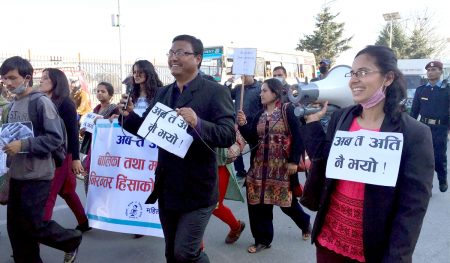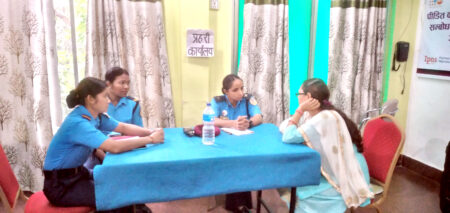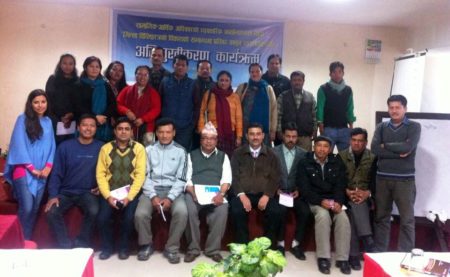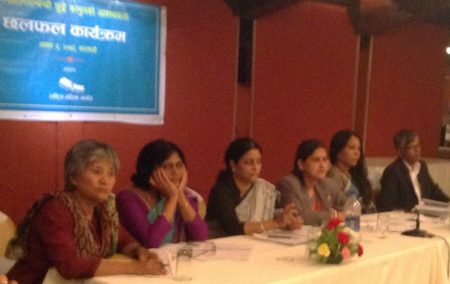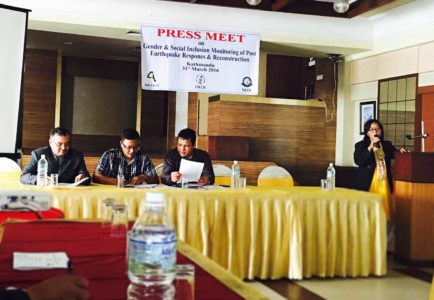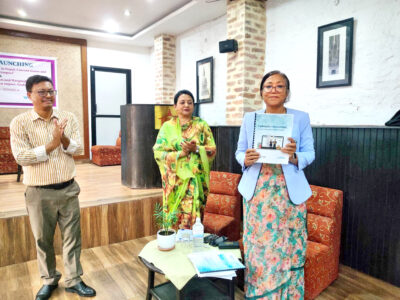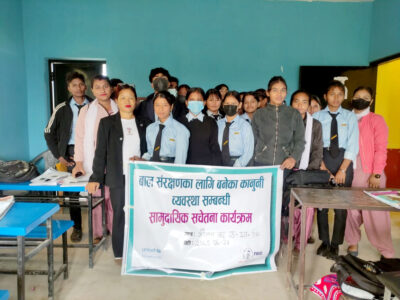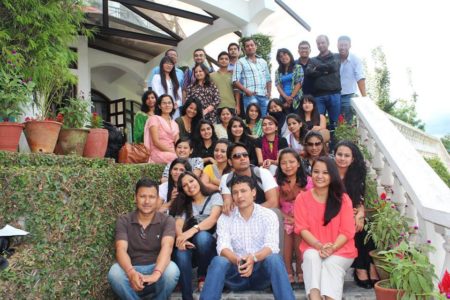Citizenship
Albeit the Constitution of Nepal 2015 possesses some discriminatory clauses that restrict the independent identity of women to transfer citizenship to her children and spouse, it addresses some progressive provisions compared to the previous constitution. Article 11(2) of the Constitution of Nepal guarantees that a person can obtain Nepali citizenship through either of her/his Nepali father or mother which is very accommodating while advocating the rights of the people without citizenship and legal identity documents.
The citizenship certificate is the primary legal identity document in Nepal. Without the certificate, individuals cannot obtain other legal identity documents such as a passport, cannot register in the voter’s roll, obtain permanent account number (PAN) Card, driving license and even a mobile phone SIM card. Additionally, they are not allowed to open a bank account; cannot own property; cannot access social welfare allowances e.g., senior citizen allowances, widow allowances; and face difficulties in registering births and marriages. It poses huge challenges in every aspect of their life and presents major challenges for living a dignified life in the country.
In the case of Nepali women, the lack of a marriage registration certificate precludes married women from applying for citizenship if she had not acquired it before marriage. If a married woman would like to have a citizenship certificate, she needs to submit birth registration and marriage registration certificates, in addition to her husband’s and her father’s citizenship certificate. This administrative burden clearly highlights the gender discriminatory law and procedure currently in place. Women are also prevented from independently passing citizenship to children, and often face discriminatory and undignified treatment by officials with patriarchal and conservative mindsets.
Birth Registration
FWLD in 2018 conducted a Legal Analysis of Civil Registration Laws of Nepal that critically analyzed the civil registration laws of Nepal by addressing the gaps and weaknesses in the civil registration laws and recommended the potential positive reforms in the same. The Legal Analysis was very accommodating in assessing the causes and barriers for the acquisition of birth and marriage registration certificate in Nepal.
The research demonstrates that there are still 22.1 percent the total eligible populations without the birth registration certificate. The findings also demonstrate that there is a visible gap in the possession ratio of the acquisition of birth registration certificate by gender (https://fwld.org/wp-content/uploads/2019/01/Final-Birth-Registration-26-dec-2018.pdf).
With regard to the reasons behind birth registration application among who possess the birth registration certificate (2703), 44 percent of the population applied for the birth registration certificate in order to get admitted at the school. This clearly portrays the requirement of birth registration certificate while enrolling at schools. However, the research demonstrates that the major reasons behind lacking birth registration certificate is primarily due to the unavailability of the necessary documents particularly the citizenship certificate of the father and the lack of assistance from the family members.
Laws Related to Citizenship
| SN | Laws |
| 1 | Constitutional Provision on Citizenship |
| 2 | Nepal Citizenship Act, 2006 |
| 3 | Nepal Citizenship Rules, 2006 |
| 4 | Citizenship Certificate Distribution Procedure Directive, 2006 |
| 5 | Work Operation of Citizenship Certificate Distribution Team Directive, 2014 |
Supreme Court Decisions on Citizenship
| SN | Name of Parties | Summary of Decision |
| 9 | Amrit Sharma v. Government of Nepal | Providing citizenship to the orphans who are eligible to acquire the citizenship of Nepal pursuant to the constitution is the obligation of the state. Thus, the citizenship distribution procedural laws cannot limit the law by imposing additional conditions on acquisition of such citizenship certificates. |
| 4 | Ashok Kumar Shah v. Government of Nepal | A person with permanent residence in Nepal will not deemed a foreign national despite not having acquired the citizenship certificate of Nepal since the citizenship laws of Nepal do not require every citizen to mandatorily acquire the citizenship certificate. |
| 7 | Bhola Nagarkoti and Shanti Nagarkoti v. Government of Nepal | The Constitution of Nepal consists of the Father or Mother provision and not Father AND Mother so the applicants must be provided citizenship certificate through the citizenship of the mother in case where the father is not traced. |
| 8 | Deepti Gurung v. Government of Nepal | Registering the birth of a child is the duty of the state and this applies not just to nationals but also to foreigners. Children of Nepali mothers and those whose fathers who cannot be traced must thus not be denied to register their births in the concerned authorities. |
| 1 | Dil Bahadur Bishwakarma v. Government of Nepal | The law clearly prescribes to mention the surname of the citizens in the citizenship certificate. Hence, the people from the Dalit Community have the right to include their surname and not their caste in their citizenship certificates like the people from other castes. |
| 2 | Nakkali Maharjan v. Office of the Prime Minister and the Cabinet of Ministers et al | There should be no discrimination in issuing recommendation of citizenship on the basis of gender and marital status. Even married women have the right to acquire citizenship through the father or mother. |
| 5 | Ranjeet Thapa v. Government of Nepal, Office of the Prime Minister and the Cabinet of Ministers et al | Persons who are eligible to acquire the citizenship certificate of Nepal, have the right to choose the place to acquire the certificate either through the father’s address or through the mother’s address. |
| 6 | Sabina Damai v. Government of Nepal, Office of the Prime Minister and the Cabinet of Ministers et al | Despite the law clearly stating that children should be provided citizenship through mother, the law has not been implemented correctly. Thus, citizenship certificates should be provided through mother in cases where the child is born in Nepal to a Nepali mother and the father is not traced. This should also apply to other cases of similar nature. |
| 3 | Sunil Babu Panta v. Government of Nepal, Office of the Prime Minister and the Cabinet of Ministers | Persons from different gender identities and sexual orientation must not be discriminated while issuing citizenship certificates. |
A documentary named “Andhero Ujyalo” on the success stories of the acquisition of Citizenship Certificate and the impacts thereto. The documentary covers the positive impacts on the lives of the people after the acquisition of the citizenship certificate. All the four stories filmed in the documentary depicts the stories of the people who were represented and facilitated by FWLD to acquire the citizenship.
Infographic video on Necessary Amendments In The Constitution Regarding Discriminatory Citizenship Provision
Infographic video on Acquisition Of Citizenship Certificate In Nepal Estimation And Projection

